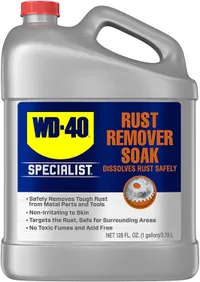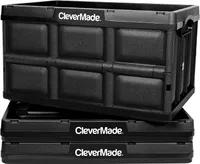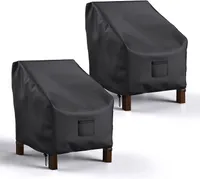7 things experts say you should get rid of in your shed right now for optimal storage
Spring is the perfect time to 'shed' those broken or long-forgotten items you no longer need

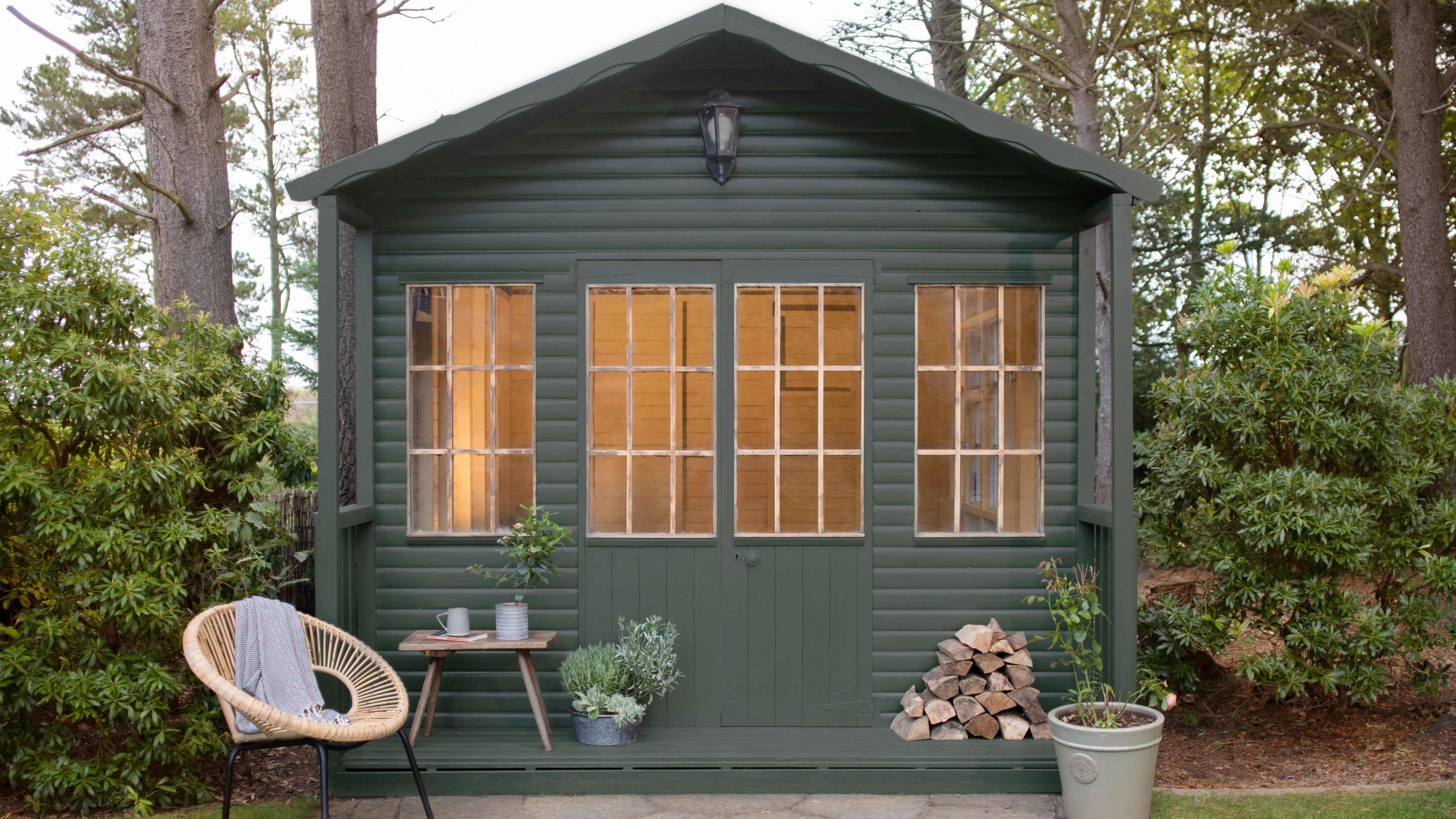
The Livingetc newsletters are your inside source for what’s shaping interiors now - and what’s next. Discover trend forecasts, smart style ideas, and curated shopping inspiration that brings design to life. Subscribe today and stay ahead of the curve.
You are now subscribed
Your newsletter sign-up was successful
Sheds are an excellent place to store garden tools, outdoor furniture, and DIY supplies, but they also become a deposit for all those broken or half-forgotten things we're shirking the responsibility of dealing with. With spring finally upon us, it's time to 'shed' those unloved and unwanted items with a serious clear-out.
Even if your shed isn't cluttered, I can almost guarantee there's something in there that shouldn't be. Maybe it's a broken pot that you're never going to fix or an old tin of paint that's beyond useable, or perhaps it's even boxes of belongings from when you moved home that you've yet to find space for inside. Whatever the case may be, experts urge you to get rid of them right now if you want clutter-free storage at the bottom of your backyard.
1. Old cans of paint, stains, or primer
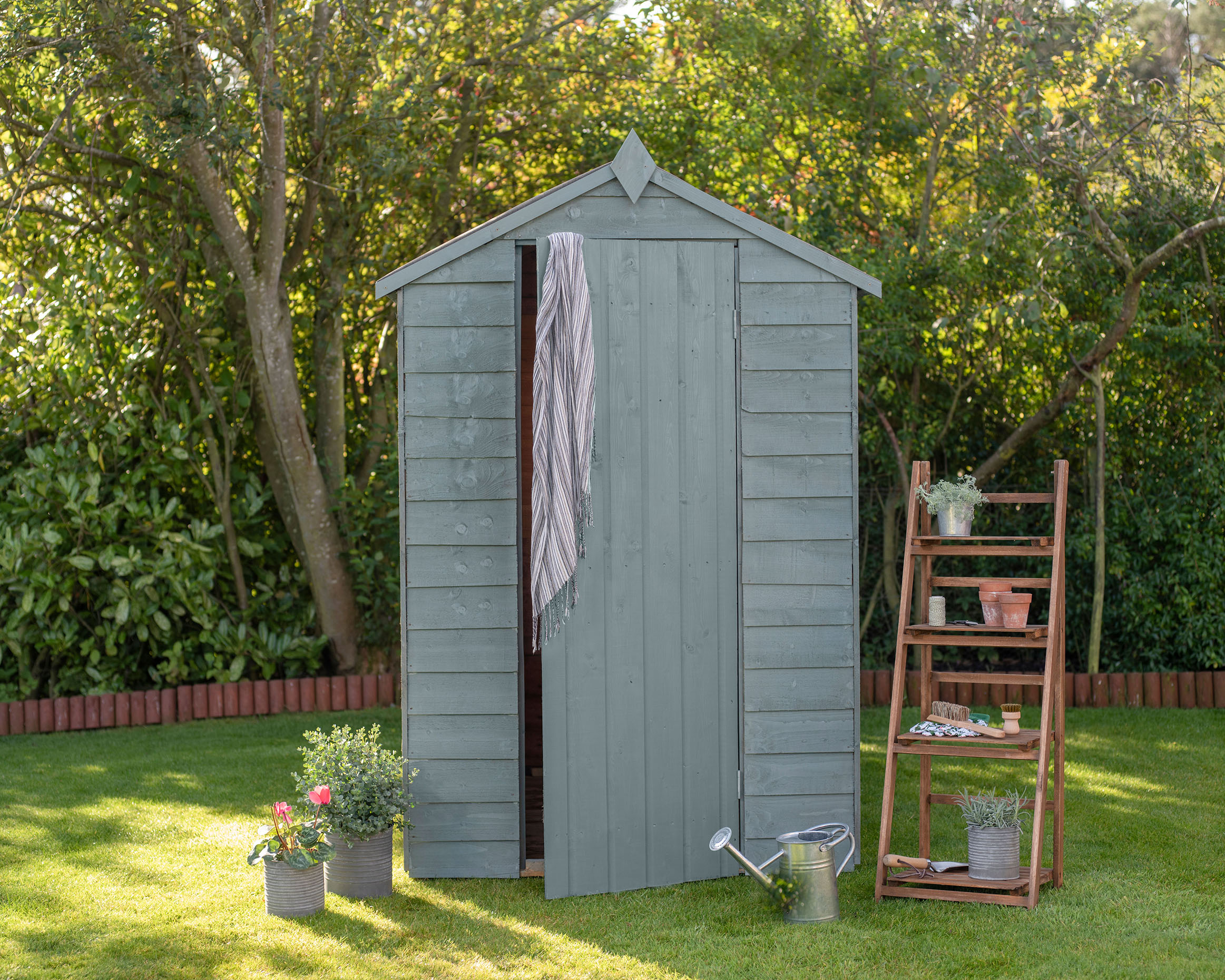
The most common offender in garden sheds? Old, half-used cans of paint. You don't want them indoors but, knowing you shouldn't leave them exposed to the elements, you stash them in the shed just in case you need them for touch-ups, where they're forgotten about for years to come.
The problem is, they're probably not even safe stored in the shed, either. 'Cold temperatures can decrease the quality and make the paint useless,' explains professional declutterer Felice Cohen, author of 90 Lessons for Living Large in 90 Square Feet, available at Amazon. 'They can also leak and cause damage or create health hazards so if you must keep paint in your shed, make sure it's properly sealed and stored away from any other items.'
It's time to face facts and realize you won't be using those ancient paints, primers, or wood stains ever again. Start by removing any that have been in your shed for more than a year. 'Verify if your local recycling facility or waste disposal center accepts paint and stains, and consider reaching out to local paint stores, such as Sherwin-Williams, for additional disposal options,' suggests Aaron Traub, decluttering expert and owner of My Professional Organizer.
2. Rusty tools

Rusty garden tools won't be serving their purpose properly so, if you want to declutter your backyard, there's no point hanging onto them in your shed (unless you're only choosing to display them on the walls for a rustic, artisanal look).
'Rusty or damaged gardening tools can become less effective and pose safety hazards, increasing the risk of accidents or injuries while working outdoors,' explains Aaron. 'Recycle the metal parts at a scrap metal recycling center and consider repurposing wooden handles into stakes or other garden supports.'
The Livingetc newsletters are your inside source for what’s shaping interiors now - and what’s next. Discover trend forecasts, smart style ideas, and curated shopping inspiration that brings design to life. Subscribe today and stay ahead of the curve.
If you're feeling thrifty and want to save a few bucks, you can always try to restore rusty garden tools. 'You can remove rust from small items such as knives and hand tools by soaking them in vinegar overnight,' says Felice. 'Afterwards, scrub with a metal brush or steel wool and rinse with clean water, drying them with a towel.'
WD-40 Rust Remover Soak, Amazon
For seriously rusty tools, try this industrial rust remover from Amazon. The WD-40 formula promises to remove rust and restore your tools or other metal outdoor items to their former glory.
3. Unused electronics or appliances
Knowing how to organize, declutter, and store kitchen appliances isn't always easy, but if one thing's for sure, the shed is a no-go zone. Whether it's mystery chargers tucked away in a box or old kitchen appliances you no longer need, the shed isn't the place for storing your old electronics.
'These items don’t do well in extreme temperature swings, such as winter to summer,' says Felice. 'They can overheat, have electrical shortages, and pose a dangerous fire hazard or corrosion. Also, when subjected to moisture, it will rust components and cause your appliance to fail.'
To dispose of them safely it's worth contacting retailers to enquire about take-back programs if you're dealing with bulkier appliances, otherwise your local waste disposal site is the best bet. 'Also, most transfer stations have special Hazardous Collection Days,' adds Felice.
4. Cardboard boxes
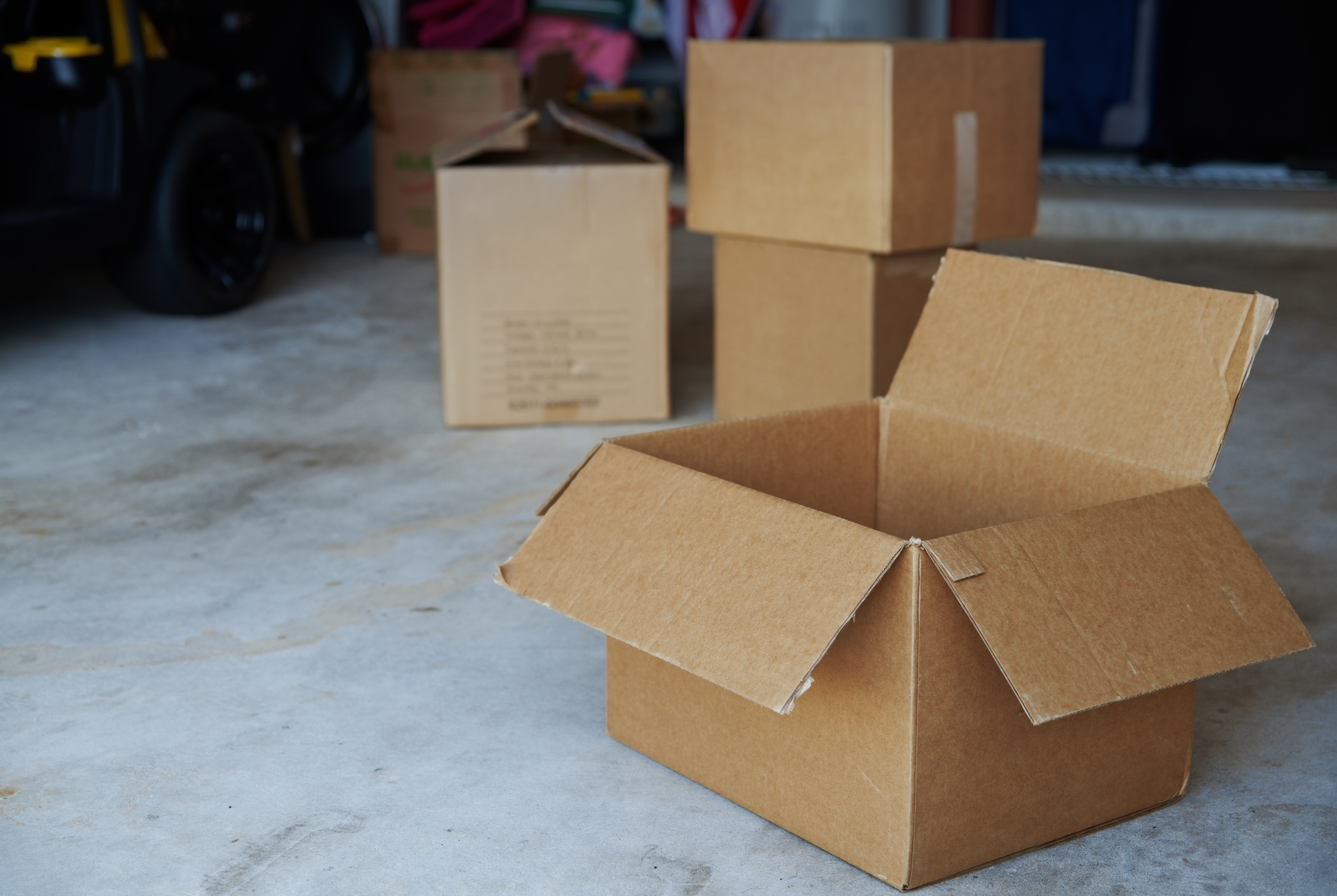
There's no denying that boxes are handy, but there's no point storing them in your shed unless you're certain you'll actually have a use for them. It can be tempting to stash away a large cardboard box for when you're moving or decluttering the home, but if they're stored in the shed for months on end, they're likely to just rot away.
Felice urges us to recycle them from the get-go. 'Don’t save those boxes from electronic purchases or Amazon deliveries,' she says. 'Unless you’re planning on moving within a few weeks, recycle them. They take up space and pests will move in.'
Collapsible storage bins, Amazon
For storage that won't rot away or be chewed through by pests, try this pack of three collapsible storage bins with lids, from Amazon. The durable crates can collapse in seconds to avoid taking up space in your shed, and they're even stackable too.
5. Expired glue, cleaning products, or other chemicals
What many of us don't realize is that cleaning products and other chemicals have expiration dates, so storing them in the shed where they're easily forgotten is not a sensible decision.
'As a professional organizer, I always recommend decluttering items such as expired or rusty garden chemicals during spring cleaning,' says Aaron. 'Over time, these chemicals can break down and potentially cause leaks or spills, contaminating the shed's environment and posing health risks to humans and pets that might come into contact with them.' Instead, consider keeping cleaning products such as bleach in a cupboard in your utility room while larger items and DIY supplies like glue should be safely stored in your garage.
6. Broken plant pots
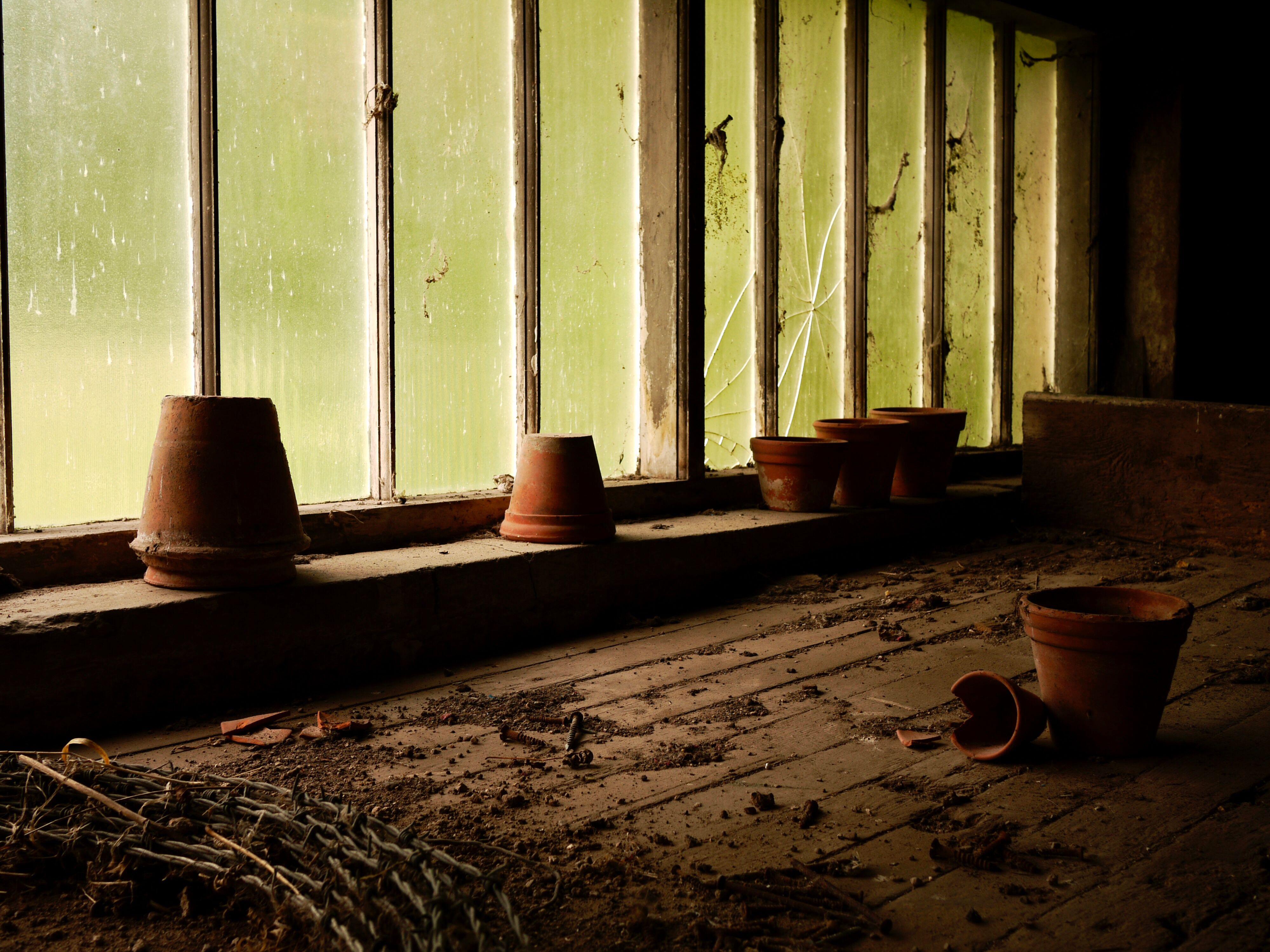
Besides being an eyesore and taking up valuable space within your shed, broken plant pots are the perfect hiding spot for pests to nest. 'Old or broken plant pots can attract bacteria and pests, creating an unhygienic environment in your shed,' explains Aaron. 'Dispose of broken ceramic or terracotta pots in your regular trash, and confirm whether plastic pots are recyclable before placing them in your recycling bin.'
This extends to any broken outdoor supplies that you've convinced yourself you're going to fix someday. 'Trust me, “someday” rarely arrives,' says Felice. 'These items just take up space and make you feel bad as they’re reminders of what you “should” do.' A trusty decluttering tip is to get rid of anything you haven’t used in the past six months. This helps to reassure yourself and overcoming the fear of regret we often experience when throwing things away
7. Old garden furniture
We're often guilty of hoarding old, dated garden furniture even once we've purchased a new set just in case we need extra seating for guests. The trouble is, this then prevents you from storing your newer furniture properly during the winter months. Make way for your modern outdoor furniture ideas by throwing out the older tables, chairs, and sun loungers. 'Doing so frees up valuable space in your shed and eliminates potential hazards caused by damaged furniture,' says Aaron.
This is especially true for wooden or leather furniture which can easily become moldy or discolored if stored in a damp shed. 'If you’ve got any furniture made of these materials in your shed and they've been there a while, chances are it's ruined,' Felice says. Instead, purchase a tarp or a designated cover to add an extra layer of protection and make your garden furniture last longer.
Waterproof patio chair covers, Amazon
These patio chair covers from Amazon fit up to 31"W x 38"D x 30"H to protect your furniture from sun, dust, rain, and snow. Both waterproof & UV protected, the heavy duty fabric will help your garden chairs to last longer, whatever your climate.

Lilith Hudson is a freelance writer and regular contributor to Livingetc. She holds an MA in Magazine Journalism from City, University of London, and has written for various titles including Homes & Gardens, House Beautiful, Advnture, the Saturday Times Magazine, Evening Standard, DJ Mag, Metro, and The Simple Things Magazine.
Prior to going freelance, Lilith was the News and Trends Editor at Livingetc. It was a role that helped her develop a keen eye for spotting all the latest micro-trends, interior hacks, and viral decor must-haves you need in your home. With a constant ear to the ground on the design scene, she's ahead of the curve when it comes to the latest color that's sweeping interiors or the hot new style to decorate our homes.
